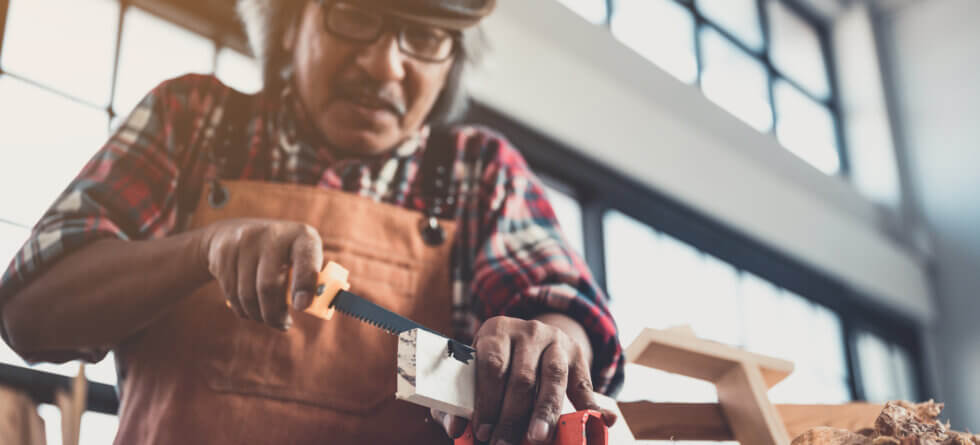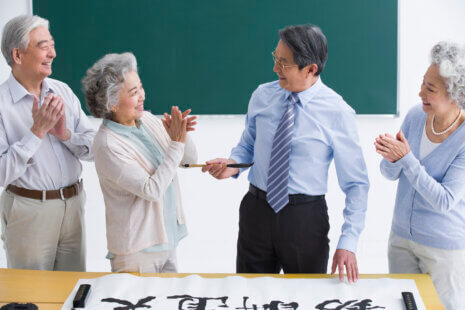In today’s fast-paced and technology-driven world, traditional homemaking skills might seem like relics of the past. However, there’s a growing movement among modern seniors who are embracing these skills not just as hobbies, but as enriching practices imbued with heritage and wisdom. Heritage homemaking encompasses a variety of practices from gardening and cooking from scratch to sewing and woodworking. For seniors, integrating these skills into daily life offers a unique way to connect with their past while contributing to a sustainable and fulfilling future.
Revisiting Tradition in the Modern Age
Homemaking, in its traditional sense, is the art of creating and managing a home which is both welcoming and functional. In recent years, there’s been a notable shift towards sustainability and self-sufficiency, making these age-old skills exceedingly relevant for today’s seniors who wish to lead more environmentally conscious and meaningful lives.
Gardening: A Link to Nature
Gardening is perhaps one of the most fulfilling homemaking skills that seniors can engage in. It’s not only about beautifying spaces but growing one’s food, which contributes to sustainability and provides a fantastic way to ensure a fresh, healthy diet. Seniors bring to their garden years of experience and patience, nurturing plants from seed to harvest, and in the process, they nurture themselves by staying active and connected to the cycle of life.
Cooking from Scratch: Savoring the Flavors of Yesteryear
Cooking from scratch is a delightful way to preserve and pass down family recipes that have been shared through generations. For seniors, cooking can be an immensely rewarding activity that allows them to share their heritage and stories with loved ones. It also promotes a diet free from processed foods, contributing to better health and well-being.
Sewing and Knitting: Weaving Threads of Memory
Sewing, knitting, and other textile crafts offer seniors a practical and enjoyable way to create unique and personalized items, from clothing and household linens to gifts for friends and family. These activities can improve fine motor skills, reduce stress, and provide a sense of accomplishment. Furthermore, they carry a legacy of resourcefulness and creativity, offering a tangible connection to ancestors who made do and mended out of necessity.
Woodworking and Carpentry: Crafting with Care
Woodworking and carpentry may require a bit more in terms of space and tools, but they’re incredibly rewarding skills that can lead to the creation of furniture, home decor, and more. These crafts offer seniors a profound sense of achievement and the satisfaction of making something durable and beautiful. Additionally, woodworking can stimulate problem-solving skills and encourage a focus on detail and precision.
The Benefits of Heritage Homemaking
Engaging in these traditional skills offers a multitude of benefits for seniors, from enhancing physical and mental health to fostering relationships across generations.
- Physical and Mental Health: Activities like gardening and woodworking encourage physical activity and can improve overall fitness. Meanwhile, cooking, sewing, and knitting offer mental stimulation, helping to keep the mind sharp.
- Emotional Well-being: Homemaking tasks provide a sense of purpose and achievement. Completing a project or preparing a meal from scratch can boost self-esteem and happiness.
- Cultural Preservation: By continuing traditional practices, seniors play a crucial role in preserving cultural heritage and stories for future generations.
- Sustainable Living: Many homemaking skills promote a sustainable lifestyle, reducing reliance on commercially produced goods and fostering a more mindful way of living.
Bridging the Gap: Seniors and Technology
While embracing traditional homemaking skills, seniors needn’t shy away from technology. The internet provides an incredible resource for learning and sharing. Seniors can find online tutorials, join community forums, or even start their blogs and YouTube channels to document and share their homemaking journey. This blend of the old and the new enriches the practice of heritage homemaking, allowing for the sharing of knowledge across generations and geographies.
Encouraging Community and Connection
Homemaking activities need not be solitary. They can become avenues for building community and connecting with family. Seniors can teach grandchildren how to bake a pie, join local gardening clubs, or participate in community quilting bees. These engagements offer invaluable opportunities to socialize, share knowledge, and build relationships grounded in mutual respect and learning.
The Modern Senior: Pioneers of the Homemaking Renaissance
Today’s seniors are at the forefront of a homemaking renaissance, proving that traditional skills have a valuable place in our digital age. By integrating heritage homemaking into their lives, seniors are not only enriching their own lives but are also offering a compelling example of sustainable living, cultural preservation, and intergenerational connection.
In this journey back to the basics, seniors demonstrate that homemaking is not just about the tasks we do but the love and care we put into them. Whether it’s through the food we cook, the gardens we tend, the garments we sew, or the woodwork we craft, homemaking is ultimately about nurturing our families, communities, and ourselves.
Conclusion
In embracing traditional homemaking skills, modern seniors are paving a unique path that intertwines the wisdom of the past with the possibilities of the present. This resurgence of heritage homemaking among seniors isn’t just a nod to nostalgia; it’s a vibrant, living practice that enhances personal well-being, strengthens community bonds, and preserves cultural heritage. Through their actions and teachings, seniors remind us that these skills, honed by generations before, hold timeless value and beauty, offering joy, fulfillment, and sustainability in our modern world.




